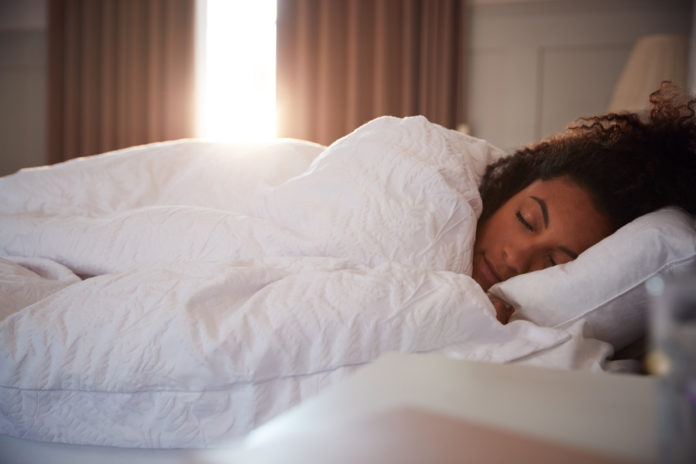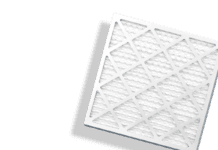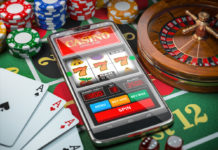These days, there is an app or a gadget for almost every purpose, and sleep is no different. Whether you want to fall asleep faster, stay asleep longer, or simply keep track of how much you sleep, there’s a device for you. Some even claim to be on par with what medical professionals use in sleep labs, making it possible for anyone to know how well they really sleep and what they can do to sleep better.
To help you make sense of all your options, here are some of the latest and greatest technologies to help you improve your slumber.
Sleep Trackers
If you have any type of wearable device, like a FitBit or Garmin, then you have probably checked out the sleep tracking capabilities. The sleep tracking space has expanded considerably, though, and the best sleep trackers do a lot more than tell you how many times you wake up each night.
One of the most intriguing wearable sleep trackers on the market is the Dreem 2 headband. This headband-style sleep tracker uses EEG sensors to track brain activity as well as your heart rate and respiration, providing some of the deepest insights into your sleep patterns of any tracker. The information collected by the device is then used to develop personalized sleep plans based on the principles of cognitive behavioral therapy, helping you get deeper, more restorative sleep. With a $499 price tag, the Dreem is a big investment in your sleep, but if you’ve struggled to get enough rest, it might be just what you need.
Although most sleep trackers are wearables, Withings took a different approach to sleep tracking by integrating sleep sensors and home automation. The Sleep Sensing and Home Automation Mat is a thin pad you place under your sheets to track your sleep patterns — and control other smart devices in your home. Not only will the mat measure your heart rate and breathing, movements, and wake and sleep cycles, but using the companion app allows you to set up “If this then that” commands with lights, thermostats, and other devices. For instance, when the mat senses you are awake, it will automatically turn on lights to a preset level. The $100 device also provides personal coaching based on your sleep patterns.
Lighting
Tracking your sleep patterns isn’t the only way to improve your nightly rest. Creating the right sleep environment is also key to a good night’s sleep, and several gadgets aim to help control the light in your sleeping environment, making it easier to drift off and awaken each morning.
For example, the Philips Somneo Sleep & Wake Up Light eliminates the need for jarring alarms to wake you up. Instead, the programmable device mimics the rising of the sun, allowing you to awaken more slowly and gently as you would when exposed to natural light, improving your energy levels throughout the day. Phillips also offers an array of smart light bulbs that can be programmed to dim as you fall asleep and gradually turn on in the morning. The Casper Glow offers similar capabilities, but with the added bonus of portability: When you wake up in the night, simply give the light a gentle shake and you have a dim light that can guide your way to the kitchen or bathroom.
Sounds
White noise is proven to help many people fall asleep, but there’s no need to rely on a fan. There are a number of free apps that offer a range of sleep-inducing sounds, from basic fan and white noise sounds to rain, ocean, wind and more. You can also select from a wide range of white noise machines and gadgets.
For those who sleep with a partner, for instance, the Dreampad pillow allows you to use the noise that you need without disturbing your partner. The pillow uses intrasound technology, which essentially means that the sound is conducted by your bones, so no one else hears it. The pillow works best when paired with the companion app, which features specific sleep-inducing sounds. At $150-$200 per pillow, the Dreampad isn’t inexpensive, but when you want to relax and get better sleep, it’s an effective option.
Apps
Along with apps for white noise, there are dozens of options or helping you relax and get better sleep via guided meditations, hypnotherapy, CBT and more. Some of the top rated include:
- Relax and Sleep Well (free on Apple and Android): Guided hypnotherapy sessions designed to reduce anxiety.
- Digipill (free on Apple and Android; additional “pills” need to be purchased): A unique concept where you select a “digital pill” to help you relax, fall asleep, or simply improve well-being. The pill is a 30 minute guided session combining sounds and language to change your mindset.
- Pzizz (free on Apple and Android): This app uses the principle of psychoacoustics or the psychological effects of sound, to help you fall asleep faster and sleep more deeply.
Getting better sleep may be just a few clicks away thanks to some of these gadgets. Just knowing where you are struggling can help you improve, so give some of these tools a try and see how much more rest you can get.










